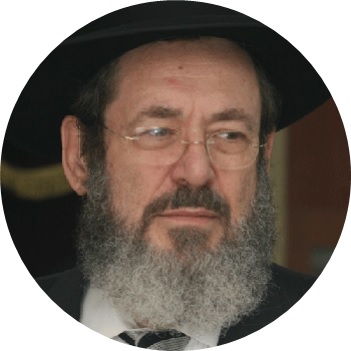Make Your Words Count

Recently, I was approached by two distinguished balabatim who always have the needs of the klal on their minds. They related a dreadful story, seeking a way to rectify what had happened and to prevent such an incident from ever happening again.
A business associate who learned they were connected to Bais Yaakov emphatically declared that he had never donated, nor would he ever donate, to a Bais Yaakov. When his wife was a young high school student in Bais Yaakov about 40 years ago, he explained, her teacher instructed the class to review a Kli Yakar in preparation for the next class. When his wife said she did not have a Kli Yakar at home, the teacher asked, incredulously, how it was possible for a Jewish home not to have a set of Mikraos Gedolos Chumashim — emphasizing the words “Jewish home.”
This girl was so embarrassed that the teacher did not consider her house a “Jewish home” that she still cringes at the memory 40 years later.
The two balabatim did not know the name of the teacher involved, nor would they divulge the name of the woman to whom this happened. We agreed that the best way to ensure such a thing does not happen again is to publicize the incident in a well-read publication that reaches a worldwide audience.
Without even knowing the teacher in question, I can almost guarantee you that she did not intend to embarrass anyone. Had she realized how sensitive her students were, she would never have uttered such words.
But teachers must know that they can never, ever utter such words — even as a plitas peh, a slip of the tongue. It must be inherent in a teacher’s psyche that belittling a student — or, for that matter, anyone else — is totally unacceptable.
The monetary loss to the school because of this incident is the most negligible result of this story. Much more significant is the woman’s 40-year sinah b’lev, and even her decline in religious observance. The balabatim told me that because the woman harbored such hatred in her heart, she would not send any of her daughters to Bais Yaakov schools.
This story delivers two sobering lessons for all of us: parents, children, teachers, students, askanim and leaders, and the amcha of Klal Yisrael.
The first lesson is about how to react — or not to react — after being at the receiving end of a painful interaction. This student latched on to the teacher’s unfortunate comment and ignored everything else she had learned throughout her schooling. She did not understand that people make mistakes, even huge mistakes, such as the one made by her teacher. If we are honest with ourselves, we realize that we might also unintentionally hurt others. As human beings, we sometimes lose control, and we’re not always aware of how our words and actions are perceived by others. Rather than blame all of Yiddishkeit, and Bais Yaakovs in particular, for her pain, this student could have chalked this incident up to what it was — a mistake that anyone can make in a moment of insensitivity. Instead, she chose a lifestyle different from the one she saw in school, allowing her hurt and anger to dictate her path in life.
But the overwhelming message of this story is still one that we must engrave deeply in our minds — the power of a few words, and how a thoughtless comment can irrevocably damage someone for life.
I would like to relate the opposing bookend to this story.
A student who attended a Bais Yaakov high school about 45 years ago came from a difficult home situation. Her father, whom she loved and idolized, had passed away, and she did not have a good relationship with her mother.
Her homeroom mechaneches noted the sadness in this forlorn student, and made it her business to approach her every day with a smile and extend a simple, kind word. Each day, this girl received a booster shot of recognition — whether in the form of asking how she had done on a particular project or complimenting her on her new shoes. This daily encouragement continued until she graduated. The mechaneches made her feel recognized and important, and that gave her the impetus to pull through.
This student is now the grandmother of a beautiful, wholesome, Torahdig family. Not a Yom Tov passes by that she does not call her mechaneches, and not a Purim has gone by without her sending a mishloach monos. She has invited her mechaneches to every one of her simchahs, even though she lives in another city.
The power of a few words.
The Lakewood Mashgiach, Rav Mattisyahu Salomon shlita, related that when Rav Eliyahu Dessler left Gateshead for Ponevezh, leaving him as the mashgiach in Gateshead, he asked Rav Dessler what is the most important thing for a mashgiach to keep in mind.
“M’darf gebben yeder talmid a lefale kavod yeden tog,” Rav Dessler replied. We have to give each student a spoonful of kavod every day.
And this applies not only to mechanchim, but to parents, rabbanim, and friends as well.
My life’s work has given me a front seat to these incidents, but they can occur to anyone, in any walk of life. Words, no matter who uses them, can change people’s lives either positively or negatively. And the more important you are to another person, the more those words will mean to them.
Make sure to make those few words count.
Originally featured in Mishpacha, Issue 743. Rabbi Shneur Aisenstark is the dean of Beth Jacob Seminary of Montreal.
Oops! We could not locate your form.













